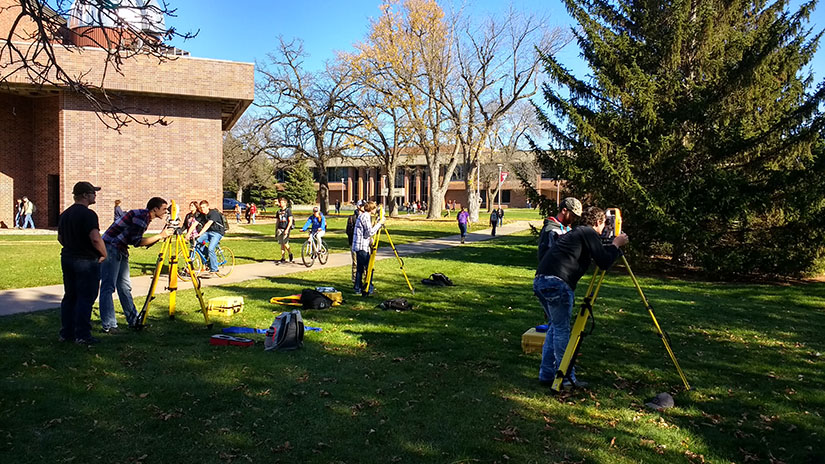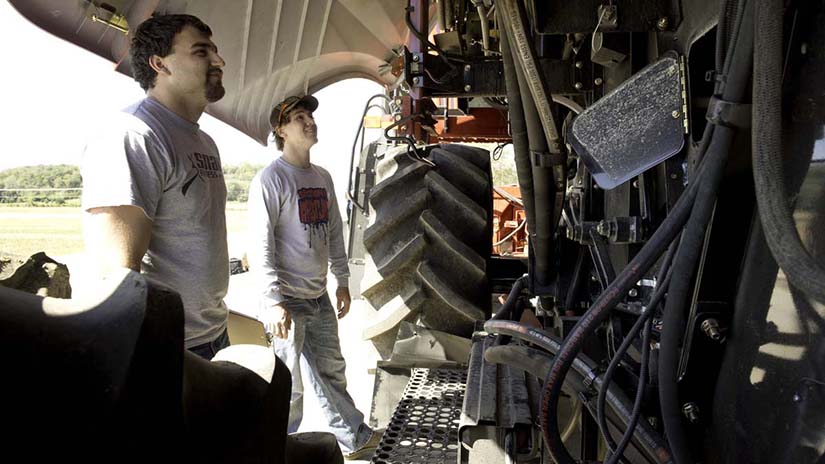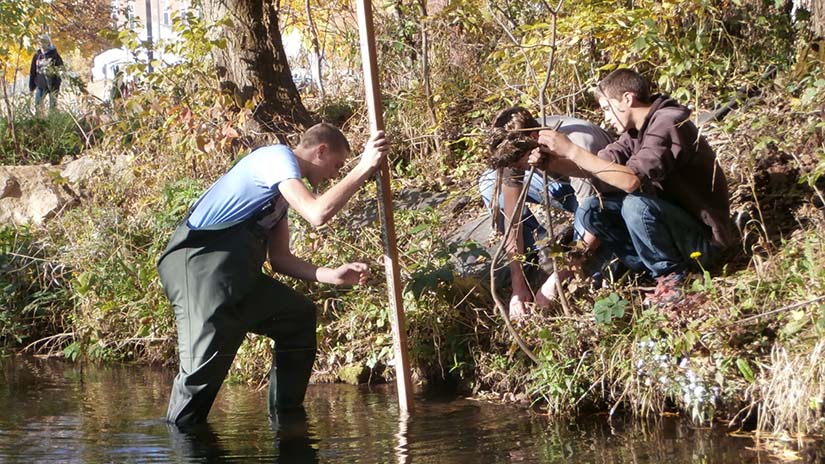UNIVERSITY OF WISCONSIN River Falls
Engineering Technology
Engineering Technology
Why Engineering Technology?
We focus on applying science and engineering to solve real-world problems related to machinery, food and processing, civil and environmental engineering, and agricultural systems management. This major is for students who like engineering and technology but want a more ‘hand-on’ experience, not working behind a desk. The BS in Engineering Technology coursework at UW-River Falls provides a broad technical background with a regional focus and prepares students for a wide array of career options.
Why UWRF?
• Focus on real-world applications
• Hands-on learning activities and
• Projects that build theoretical knowledge and tech-focused skills
• Students have opportunities to work with state-of-the-art equipment
• Develop soft-skills needed in today’s workplace: critical thinking, teamwork, project management, and communication
Students from the program are currently employed in a wide variety of industries including agriculture, food, environmental systems, machinery testing and manufacturing, construction, and renewable energy and power systems.
Our courses encompass four broad areas:
• Power, machinery, electronics, and information systems in agriculture
• Water resources, project management, soil testing, CAD and GIS
• Food and bioprocess engineering, processing systems
• Agricultural systems management, business, personnel management
Students can choose from one of four options:
• Test Engineering Technology: Students in this option will work for equipment manufacturers or dealers. They will test equipment to ensure it performs according to design specifications. Using their engineering knowledge, they will communicate issues to the engineering design team and make recommendations for product improvements. Students could also work for equipment dealers to provide technical support for precision agriculture technology. Potential employers include large companies like The Toro Company, John Deere, regional equipment dealers like Tractor Central, Riesterer & Schnell, and Midwest Machinery, and many other small manufacturers.
• Civil and Environmental Engineering Technology: For those who like a blend of working outdoors and indoors. Students in this option area will learn how to design systems to safely manage stormwater runoff, how to perform soil testing during construction projects, design wetlands, how to perform topographic surveys and construction layouts, and how to manage projects. Employers include private engineering firms, construction management companies like Mortenson Construction, or government agencies like soil and water conservation districts, department of natural resources, and more!
• Food and Bioprocessing Technology: Students who choose this option will learn how food and other raw materials are stored, manipulated, and processed into food products and ingredients, biobased chemicals, fuels, and plastics to meet consumers’ needs. Course topics include designs, implementations, operations, and controls of processing equipment and systems (ex. pasteurization, canning, freeze drying, dehydration, membrane filtration, fermentation, and packaging), system improvements, product development, and food safety regulations. Professions in food industries are generally robust to economic fluctuations and are in high demand regionally, nationally, and internationally, due to rapidly growing populations. There are numerous food and biochemical companies, equipment and ingredient suppliers with close proximity to UWRF. Examples of employers available in MN and WI include Cargill Inc., CNH global, General Mills, Land O’ Lakes, Seneca Foods Co., Advanced Food Products, Schreiber Foods, Conagra Brands, Kerry Group, Hormel foods, Nestle, Schwan Food Co., SunOpta, Tetra Pak, Agropur, Masterson foods, Lakeside foods, and many more!
• Agricultural Systems Management: This option was developed for students interested in supplementing their engineering skills with agricultural economic courses, providing a background in agricultural business. Students choosing this option often go to work for an agricultural producer or equipment dealer.














